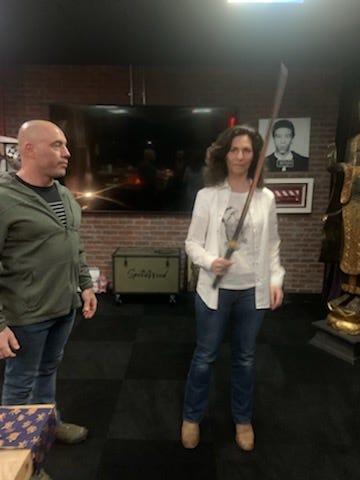That time Joe Rogan was afraid to smudge, and the Native lady who caused his fear factor
An interview with Shannon Keller O’Loughlin, chief director of the Association on American Indian Affairs, who once dared to enter Rogan’s lion’s den – and came out to gab about it.

We rhetorically asked the other day whether Joe Rogan’s programs in which he’d used the word “redskins” sho…
Keep reading with a 7-day free trial
Subscribe to Indigenous Wire to keep reading this post and get 7 days of free access to the full post archives.

